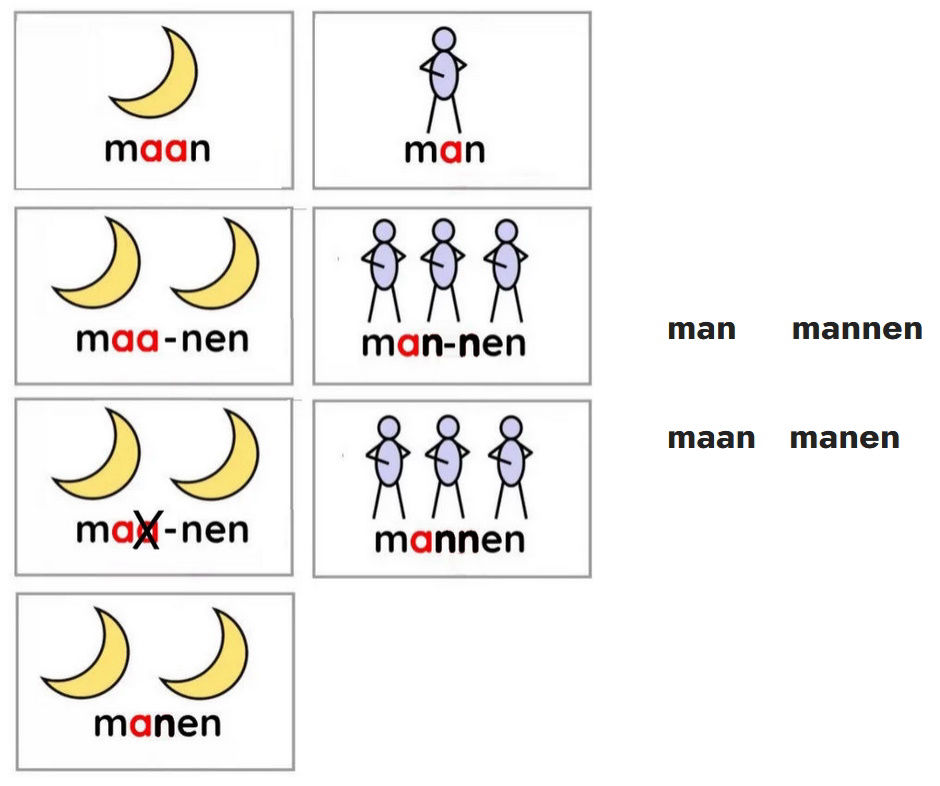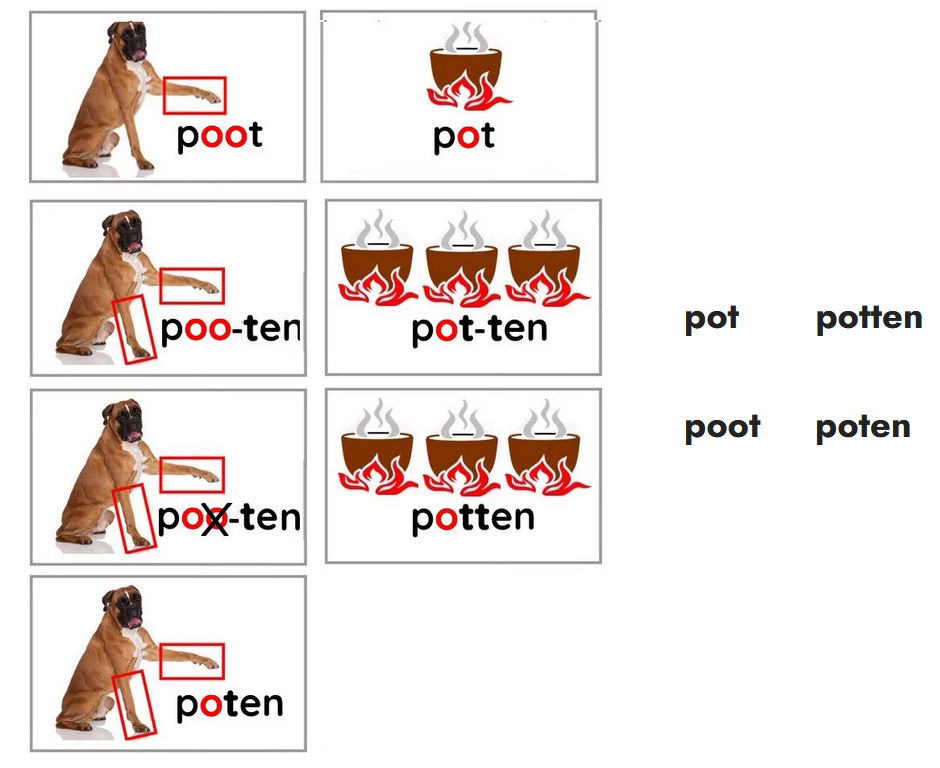
Notice
Now we compare the words for fish and man both for the plural and the singular form. Listen to the pronunciation. The sound remains short. Notice also that the last letter of the singular form is doubled. This in fact is the reason that the short-a and short-i remains short.
<<<


